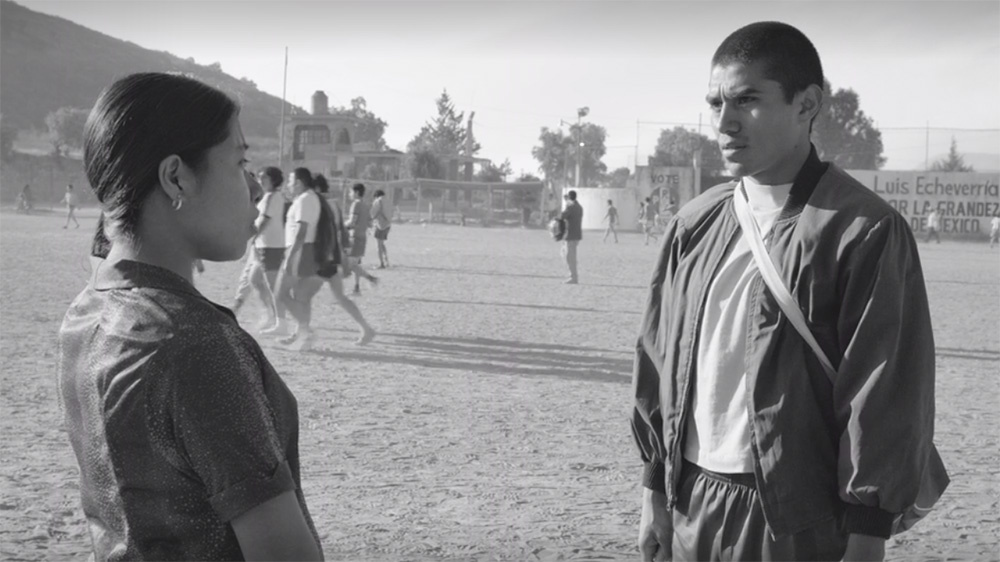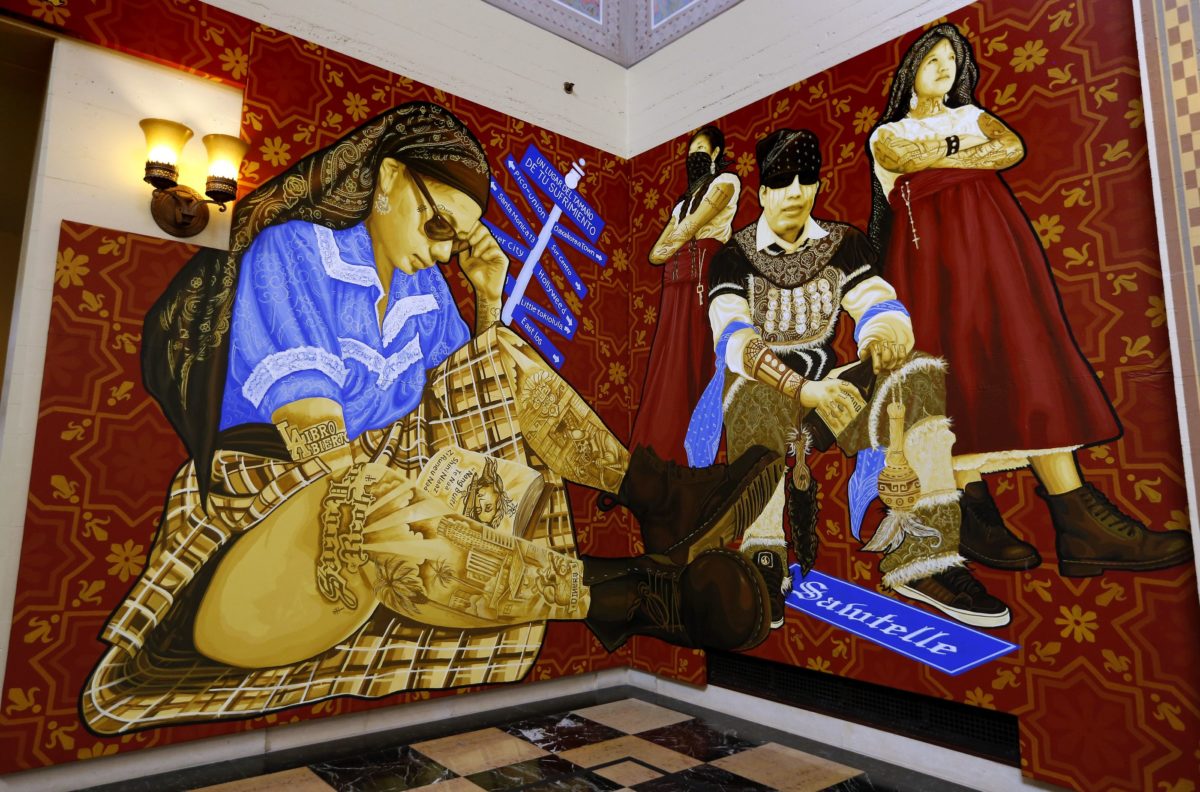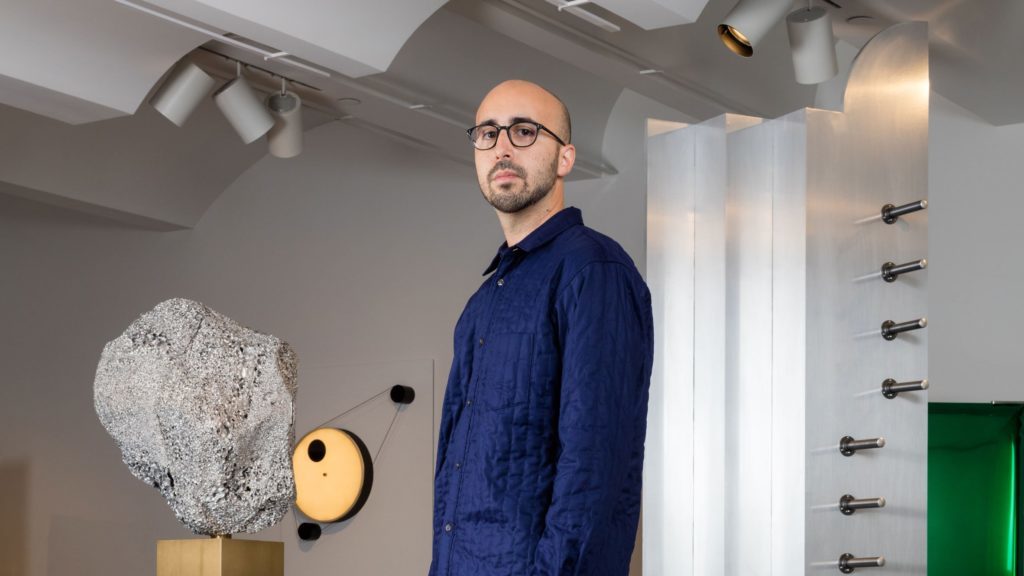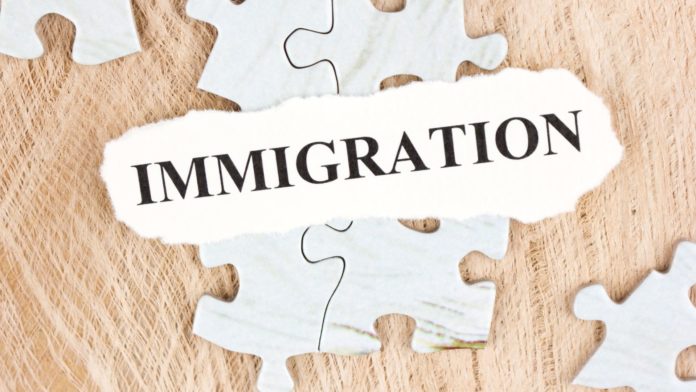In January 2017, the abrupt enforcement of Trump’s Muslim Ban ushered in a harsh new era of immigration policy in the U.S. One of the many tragic results is that artists of all stripes have found it much more difficult to travel and work here — even for short periods of time. Making it big in the U.S. is still considered the pinnacle of success but lesser-known artists and entertainers are starting to rethink their trajectories. Stories about artist visas tend to get lost among the more shocking headline-grabbers but the U.S. could be missing out on a generation of creative visionaries.
Over the past two years we’ve survived an avalanche of horrible news followed by even more horrible news. It seems like we’re being forced to re-examine every aspect of life in this country. What we took for granted; what we hoped to change; who we think we are; who we want to be and what the American dream really is. Although this country has a very checkered history, it was built on racial and cultural diversity. Art has always been one of the purest ways to bridge the divide, communicate without words, and transcend language.
Why Art Matters More Than Ever
Art is a much needed escape from the never-ending onslaught of heart-breaking and enraging news stories scrolling through our news feeds. It’s a vital antidote to divisive social media trolls. Taking in a concert or an art exhibit or dance performance or a movie is one of the few opportunities we have to just be in an experience, shared with strangers, celebrating creativity. A vital reminder that we’re all in this together. A way to process this bizarre time in history. A way to explain it and a way to make sure future generations never forget it.

The unexpected success of Alfonso Cuarón’s award-winning film, Roma, is a perfect example of art’s power to cross cultural barriers. Roma’s incredible success is also a reminder that Trump’s nationalist view does not reflect the vast majority of Americans. Without the power of Cuarón’s Hollywood cred and Netflix supporting the film, its breakout star, first-time Oaxacan actress, Yalitza Aparicio probably wouldn’t be gracing red carpets and charming American audiences this awards season. We wouldn’t be seeing an indigenous woman on the cover of U.S. magazines, embodying the complexity and beauty of Mexican culture.
Before the Trump Era, lesser-known artists and entertainers were able to pop in for a festival, gallery opening, theater run or tour on a tourist visa, B visa or through the Visa Waiver Program (VWP). These were all inexpensive, easy, and relatively quick to obtain. Although, you technically aren’t supposed to do any work for money with these visas, the rules weren’t strictly enforced.
A Changing Landscape for Artists in America
In early 2017 we saw the first signs that the U.S. artistic landscape may be about to change drastically when multiple musical acts were forced to cancel their appearances at SXSW in Austin, TX. Spanish rapper Yung Beef was at the airport, about to board his plane in Barcelona when he was informed his visa had been revoked. He wasn’t given any explanation and despite intervention by SXSW and Spanish officials, he was forced to cancel his trip. Yung Beef summed up his experience in a tweet, “Now it’s not that they’re not letting me in at the club, now they’re not letting me enter a country.” Later, Customs and Border Protection (CBP) told Remezcla, “If an individual is a member of an internationally recognized entertainment group, they must apply for and be granted a P-1 visa. It is important to note that issuance of a visa or a visa waiver does not guarantee entry to the United States.” Like many musicians coming to the states for a festival, Yung Beef had applied through the Visa Waiver Program (VWP).
Chilean band, Trementina, who was also scheduled to play at SXSW that year, received an email days before they were planning to leave, informing them their travel through the VWP was being denied. They posted on Facebook, “We’ve tried to contact the U.S embassy in Peru, Mexico, and Chile, and they didn’t give us any answer or solution. We’ve lost airplane tickets, a month and a half of shows and a lot of work and time….” They believe their travel was denied because they had planned a small tour in addition to their SXSW appearance. They chose to do the tour in Mexico, where they were welcomed, and we missed out on getting to know a great band.
Several acts from other countries were also forced to cancel their SXSW performances that year. The festival’s International FAQ page now suggests that foreign acts consult a lawyer to help with the visa process and discourages people from attempting to enter through the VWP.
Towards the second half of 2017, international artists and venues hosting them were beginning to realize that they needed to be much more careful about planning shows in the U.S. Fewer people were being turned back at the last minute. Of course, it’s hard to know how many simply decided not to come here at all.
From Bad to Worse
On April 18, 2018, Trump’s “Buy American, Hire American” (BAHA) executive order made it even harder for foreign workers, including artists, to come to the U.S. Under BAHA the default response to a visa request at Citizenship and Immigration Services (USCIS) is “no.” The onus is on the applicant to prove that they are uniquely qualified to do what they’re coming here to do.
The only semi-reliable path for artists coming to the US. involves hiring a lawyer to help you acquire a P-1 visa (for extraordinarily talented entertainment groups) or an O-1 visa (for extraordinarily talented individuals). What constitutes an extraordinarily talented group or individual? That’s subjective and entirely up to the discretion of USCIS. In 2018, the Department of Homeland Security (DHS) issued a new policy directive allowing Citizenship and Immigration Services (CIS) staff to deny any visa they deemed to be “frivolous or meritless”. They don’t need to provide any explanation for this decision and there are no stated guidelines for what constitutes a meritless claim.
O and P visa applications can cost $5000 or more and require a mountain of paperwork: press from recognized publications (what constitutes a legitimate publication is also subjective), references from parties that have no financial stake in your coming to the U.S., and signed contracts. The process can take a very long time and, of course, these visas can be — and often are — revoked without notice too. Few struggling artists have the resources to apply for these visas and few are willing to risk spending the money on a plane ticket if there’s a chance of being turned away at the gate.
U.S. organizations who want to sponsor an artist from another country must jump through similar hoops. The organization needs to file a petition with USCIS, making a case that the person or group they wish to sponsor is well-respected or famous enough.
[advanced_iframe src=”<iframe width=”100%” height=”124″ scrolling=”no” frameborder=”no” src=”https://player.wbur.org/artery/2017/07/03/artist-visas”></iframe>” width=”100%” height=”600″]
As Matthew Covey, an immigration lawyer and the co-founder of Tamizdat, a nonprofit that advises and advocates for traveling artists tells WBUR, “The delays that you’re going to be experiencing in getting those visas are longer than they would have been a year ago… What is a broader effect, I think, is that there is a pervasive sense in the international community that the U.S. is becoming a hostile environment for performing artists.”
Art is a much needed escape from the never-ending onslaught of heart-breaking and enraging news stories scrolling through our news feeds. It’s a vital antidote to divisive social media trolls…ai vital reminder that we’re all in this together.
An Expression and Creativity Shutdown
Although fame and money help to grease the visa wheels, sometimes even that isn’t enough. Famed diva Isabel Pantoja has been beloved in Spain and Latin America since the 1970s. In 2014, she was convicted of money laundering in her home country and served a two-year prison sentence there. After her release, Pantoja scheduled a triumphant comeback tour including dates in Miami and San Juan. She was initially granted a U.S. visa but, after a second review, it was revoked due to her criminal record. Although her promoters had hoped to resolve the issue, it’s unlikely that she will be allowed to perform in the U.S. before 2020 — or three years after completing her sentence.
As bad is it’s gotten, getting here is only half the battle. In 2018, the Los Angeles Public Library (LAPL) celebrated the closing of one of its most popular exhibits, Visualizing Language: Oaxaca in L.A., a collection of murals by Oaxacan collective, Tlacolulokos. Visualizing Language was more than just an art show. It was much more than an opportunity to learn about Oaxaca and the Zapotec community, which is one of the largest indigenous groups in Mexico and Los Angeles. According to the LAPL, the exhibit explores, “…language and culture as a key lifeline sustaining the shared experience between Mexico, Los Angeles, and beyond, with a look at how migration and the socio-political environment shape identity and cultural traditions.”
[advanced_iframe src=”<iframe src=”https://player.vimeo.com/video/229623027″ width=”640″ height=”360″ frameborder=”0″ allowfullscreen></iframe>” width=”100%” height=”600″]
Bringing Tlacolulokos to create their work on-site, in person was an opportunity for Oaxaca and L.A. to explore and understand their shared culture. The popularity of the exhibit illustrates how visual art uniquely transcends language and how meaningful such exchanges are to our growth and understanding of each other. Because of their success at the LAPL, Tlacolulokos were traveling in California to meet with galleries and explore other opportunities when they were stopped at the San Francisco International Airport on January 8, 2018.

Dario Canul and Cosijoesa Cernas, the artists who created the murals, missed the closing reception of their show because their visas were revoked. They were deported to Mexico and have been banned from returning to the U.S. for five years. Like so many people in their situation, they have refused to comment publicly about exactly what happened, for fear of hurting their chances of ever returning to this country.
Legal Residents Also Challenged
Even legal residents run into serious obstacles in the current climate. In February 2017, Juan Garcia Mosqueda, founder of Chamber a successful gallery in NYC, was returning from a trip to Argentina when CBP detained him for 36 hours before forcing him to return to Buenos Aires. Mosqueda missed an opening reception at his own gallery.

He went on to say, “To my American friends, I urge you to contact your congressmen and push for immigration reform. Push for a system that does not alienate, intimidate, and bully foreigners but that, on the contrary, welcomes and encourages citizens from all countries to want to keep investing in and contributing to your wonderful country.” Fortunately, Mosqueda has been able to return to his life in the U.S. Unfortunately, he had to close the gallery but he is pursuing graduate studies at Harvard and continues to curate art exhibitions around the country.
We can only hope that this, like so many of the Trump administrations atrocious immigration policies, will be short-lived. In the meantime, we are missing out on countless fresh voices and narrowing our cultural horizons by shutting out the rest of the world.
For Image credit or remove please email for immediate removal - info@belatina.com





































